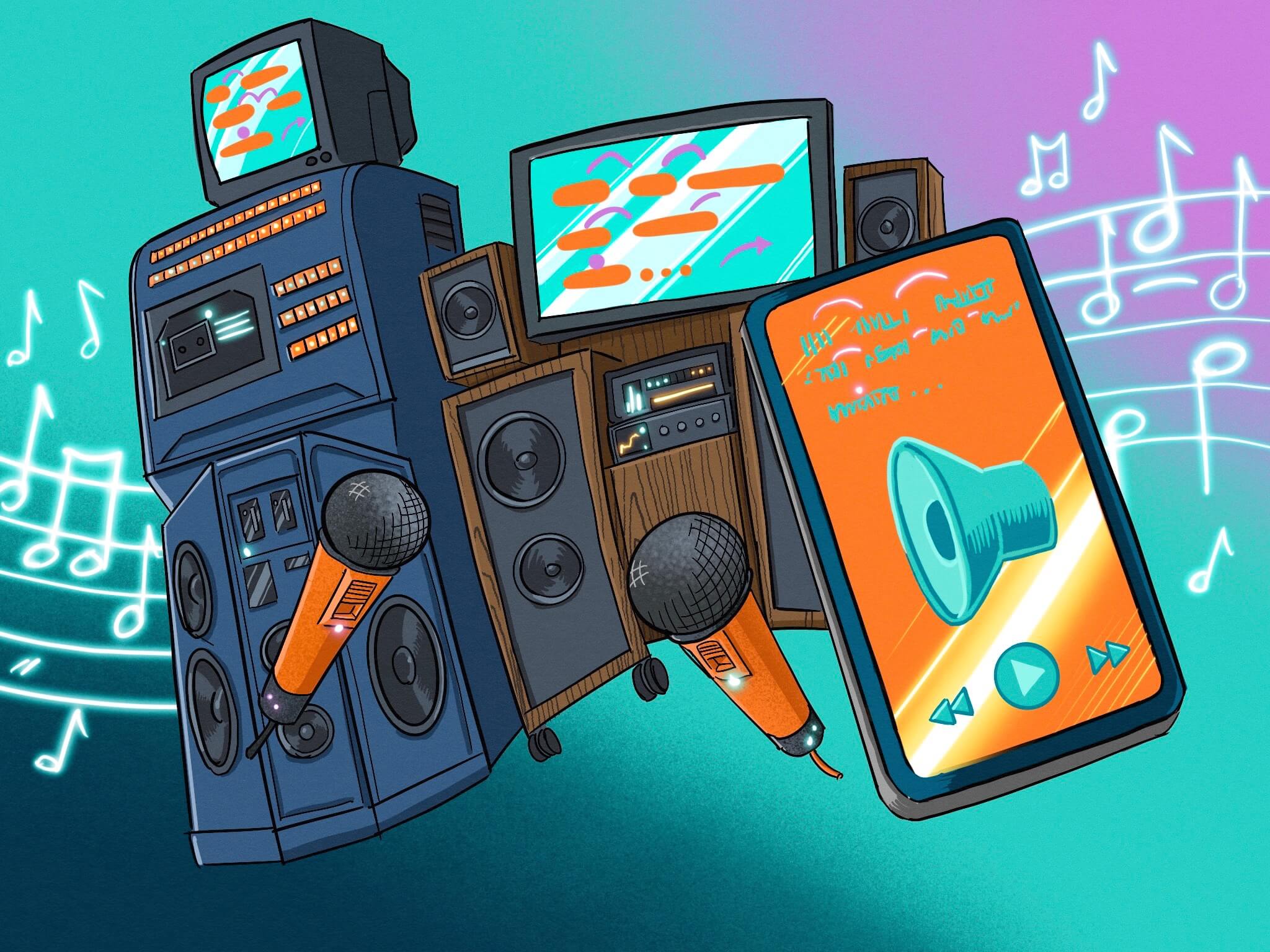Quantfury Gazette
Karaoke and its universal appeal

Karaoke (also known as Noraebang in Korean) is popular and widespread in Asia. Karaoke originated in Japan when an innovative bar owner invited the guests to sing on the stage when the band failed to show up for the gig. Hence, the literal translation of Karaoke is ‘Empty Orchestra’ in Japanese. Karaoke quickly became popular in Japan and spread to other parts of Asia, especially in China, the Philippines, and Korea, as music and harmony have always been a trademark of dining entertainment in Asian dining culture.
Noraebang is the staple stress-relieving destination where you can rent soundproof rooms to sing. Growing up in Korea, I often went to Noraebang after school. Private soundproof rooms where my friends and I can be loud and sing our favourite tunes to burn off steam and destress. At almost every Korean gathering, whether work-related or family-related or simply an outing with friends, Noraebang is typically the last destination after a night of drinking.
On weekends, my family would invite friends and family for dinner and Karaoke at home. Many households in Korea had home Karaoke machines at home; its a commonplace. My living room was my stage where I would perform my parents, uncle’s and aunt’s favourite songs to get tips, I was eight years old, singing classics from Frank Sinatra and Bee Gee, and I was doing my best imitation of Michael Jackson’s moonwalk while singing Frank Sinatra’s My Way, it was definitely tip worthy. Karaoke is ingrained into my culture from the time I was young, and it has continued as I got older.
My mom has a background in interior design and always hated how poorly home Karaoke machine was designed as they never blended in with other home furniture, picture a home theatre setup with multiple speakers with wheels with a microphone, home Karaoke machines were bulky and raggedly designed. The rise of technology has made Karaoke more accessible and convenient for everyone, and Tencent Music Entertainment (NYSE: TME) social karaoke app “WeSing” is a prime example of this.
Gratefully, nowadays, you just need your smartphone and a Bluetooth microphone. WeSing is a social karaoke app by Tencent Music Entertainment (NYSE: TME) that turns your smartphone into a karaoke machine. You can conveniently turn your home or your car into a Karaoke. And yes, carpool karaoke was a thing before it was popularized by The Late Late Show host, James Corden, where he would invite celebrities to sing with him in the car navigating through L.A. traffic. WeSing has in-app video recorder functionality, which enables you to record yourself singing in the app and share it on other social media platforms such as Youtube and Tiktok.
It is worth mentioning that Tencent Music Entertainment (NYSE: TME) is one of the largest online music and entertainment platforms in the world, offering a wide range of services, including music streaming, Karaoke, and live music events. Their commitment to innovation and technology has allowed it to stay ahead of the curve and provide users with a unique and seamless karaoke experience. The app is available in multiple languages, making it accessible to a global audience. With its widespread reach and user-friendly interface, it is no wonder that WeSing is quickly becoming a popular karaoke app among karaoke enthusiasts.
Karaoke has been branched out to many countries outside Asia, and you can easily spot Karaoke bars in almost every city. Karaoke is affordable and doesn’t have age or background restrictions as music is universal, and everyone can join in. Also, it’s worth noting that many first-generation K-pop idols were recruited by the record label executives at Noraebang, and this practice still continues today.
I think Noraebang will continue to become more popular because of its affordability and universal appeal, as music knows no bounds, and everyone can participate. This is also evident in the fact that many first-generation K-pop idols were discovered in Karaoke, and the practice continues to this day. Whether it is at home, at a Noraebang, or through a social karaoke app like WeSing, Karaoke provides a fun and inclusive form of entertainment for people of all ages and backgrounds and is an activity that I won’t stop enjoying anytime soon with my friends.
Want to get published in the Quantfury Gazette? Learn more.
